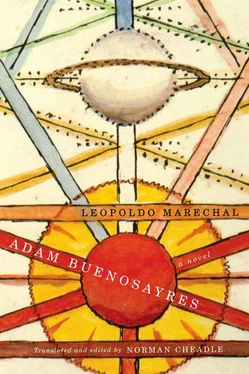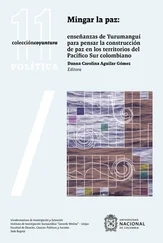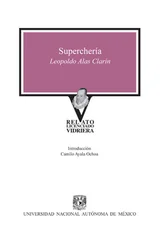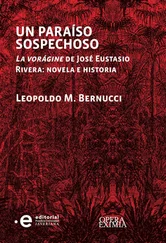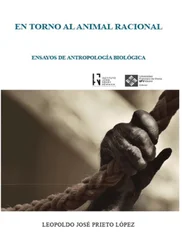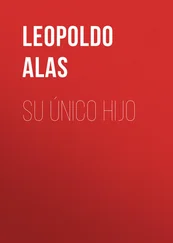”One night I awoke with a start: in my soul I felt more lucid than ever before. But my body felt a tremendous weakness. I didn’t know how long I’d been asleep, and with increasing alarm I noticed my clothes were ridiculously big on me, my bottle-green suit was falling off my shoulders, my extremities were either no longer there or had shrunk prodigiously within their sleeves and trouser cuffs. Was it a nightmare or not? Careful! My intelligence was wide awake, my eyes registered no other reality than the very reassuring presence of Room Number Three, with its reading table, green lamp, familiar bookshelves, and the skylight drummed by the rain. And yet, it was as though I were tied to the armchair; something held me in place, an inertia dominating my little bit of a physique and prudently warning it against any attempt to stir! But I had no intention of staying stuck there like an oyster; come what may, I had to snap out of it and get back to my studies. Up you get, then, Ecuménico! Back to work! And when I tried to get up, the second revelation of the night occurred. I attempted to place my hands on the table and my feet on the floor, like any creature trying to stand up from a sitting position. But my arms and legs wouldn’t obey the order. Actually, it wasn’t just that my limbs weren’t responding; it felt as if they were no longer even there. As my body attempted to right itself, I lost my balance, tumbled out of the leather armchair, and fell in a muffled, insignificant little heap, the softness of my landing due, I thought, to the ample padding of my clothes. And what a pile of clothes! I felt trapped and suffocated inside them, as if a tent had fallen on top of me. Twisting and turning with a rather disconcerting flexibility, I clambered my way through the stack of familiar garments until I emerged into the light and saw myself naked on the carpet. And what I saw was certainly curious: Don Ecuménico, former insurance broker, had been transformed into a beautiful little creature with a vermiform body, a worm with plump rings gazing in wonder at his new structure!
”For you mustn’t think that the discovery of such an uncommon metamorphosis caused me the slightest hint of panic. True, I was concerned at first about what I imagined to be the awkward aspects of my new constitution. But when I crawled comfortably, and not without elegance, across the carpet; when I dared scale the walls with the same aplomb; when I crawled across the ceiling upside down, disdaining the daunting old laws of gravity; when I looked at things from hitherto unknown perspectives and measured the wealth of my new possibilities, then a joyous exultation came over me, lasting throughout the night until the break of day. But then, seeing daylight filtering through the skylight, I remembered the Librarian: would the blind man notice my scandalous transformation? There lay my clothing in a heap on the floor, the discarded garments recovering their original colours now that they’d left me. Inevitably, the Librarian would have to see them when he came to Room Number Three! Fortunately, I had a renewed attack of what I described earlier as infinite voracity, except that now it wasn’t for intellectual substances: I hungered for material solids, stuff I could gnaw on and swallow. So I ate up all my clothes. Then, returning to my leather armchair, I watched for the Librarian’s arrival. He came in at last, looked around vacantly, and left. Deo gratias!
”After that I devoted myself to the pleasant work of gnawing and physically devouring the volumes in the room, the luxurious bindings, the delicious gilt, the papers from Japan, Flanders, and Italy. I chomped away and surfeited myself as before, but now I did so at a bestial pace, given over to the rudimentary laws of hunger and sleep. Springtime went by, and the ravages to Room Number Three became alarming even to me. The Librarian, however, showed no sign of concern. At first his indifference reassured me at first, but it soon caused me a dull anger. That man or devil was trying to ignore me, or was pretending to ignore me! I decided to provoke him somehow: one day I crawled furtively into Room Number Two, climbed the hat rack, and ate the Librarian’s pearl-grey Stetson, which had no doubt cost him an arm and a leg. Returning to my domain, I awaited, not without emotion, the surely inevitable reprisals. But the Librarian acted as if nothing had happened; and so, going back to my feasting, I forgot all about him.
”I gorged myself and slept, my abdominal rings grew dangerously fat, and as I lay collapsed in the friar’s armchair I sensed that my periods of sluggishness were growing longer. The day finally arrived when I could no longer get out of the chair. I fought against lethargy, managed to wake up for a moment, then soon succumbed once again to my terrible drowsiness. My ringed body began to break out in cold sweats, and the sweat immediately hardened, until finally it formed a secure crust around me, a closed cocoon, an inviolable sleeping chamber. And I slept in my cocoon for a long time. Until one day I woke up, in the grip of unfamiliar impulses and a kind of mad strength. I turned within my narrow prison and at last scratched through the hard shell encircling me. I emerged fluttering, drunk on light, avid for heights. How ridiculously tiny was Room Number Three! I beat my wings, took flight, and bumped head first into the walls, the bookshelves, the ceiling, the closed skylight, as though the room were another cocoon and I had to break out of it, too. Then appeared the Librarian Who Peered Out from Hazy Distances: distracted as ever, draped in silence, with his vegetal indifference, his terrible apathy, that man, if indeed he was such, opened wide the skylight. And out I flew to the open air, only to descend into this Inferno.
Don Ecuménico had finished telling his story. He looked at each of our faces, fixedly, anxiously, as if waiting for an objection, perhaps a question, or even a look of consolation. But Schultz and Tesler maintained their distant air, and I couldn’t find a thing to say to him. Seeing which, Don Ecuménico flapped his wings, managed to achieve lift-off, and flew away heavily, flitting among monstrous flowers.
XIII
A big, plain iron door led from the eighth to the ninth and final circle of hell. There we took our leave of Samuel Tesler who, after a rather cold handshake, turned his back on us and returned to the City of Pride. Schultz bade me enter through the open door. One after the other, we descended a spiral staircase that took us to the very edge of the Great Pit yawning at the end of Schultz’s Inferno. I peered over the edge into the maw. Deep down I saw a great shuddering mass of something like gelatin, which gave the impression of being a gigantic mollusc, though it wasn’t.
— It’s the Paleogogue, Schultz gravely informed me.
I turned again to contemplate the monster, and although I noted no particular evil, it seemed that all forms of wickedness were synthetically united in its undulating mass, and that the abominations of Schultz’s hell found both their origin and their meaning in the gelatinous beast writhing in the Great Pit.
— What do you think? Schultz asked me, pointing at the Paleogogue.
I answered:
— Nastier than a fright at midnight. Got more gills than a dorado. Serious as a monk’s codpiece. More ingratiating than a rich man’s dog. Sharp-pointed, like an old man’s knife. More puckered than an immigrant’s tobacco pouch. Shit-smeared, like the boot of a Basque dairyman. More ornery than a draw-wheel nag. Uglier than a pig’s somersault. Tougher than a vizcacha’s paw. Skittish as a washerwoman’s pony. Solemn as the fart of an Englishman.
balín (< bala , “bullet”) — small-bore bullet; argot term for penis; by metonymy, homosexual.
Читать дальше
